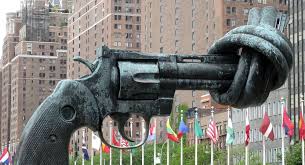In a sharp reversal of roles, several countries that are traditional allies of the United States, including Australia, Canada, the United Kingdom, and New Zealand, have issued travel advisories warning their citizens about safety risks when travelling to the U.S. This move, which was once commonly associated with the U.S. cautioning Americans about destinations abroad, now highlights growing concerns about gun violence, civil unrest, and unpredictable law enforcement practices within America.
In June, the Australian government updated its travel advisory for the United States, citing rising incidents of gun violence and frequent civil protests. The advisory encourages Australians visiting the U.S. to be cautious in crowded places such as malls, public venues, and transport terminals. The update also warns about complications under the U.S. Visa Waiver Program, which allows authorities to deny entry to foreign nationals without providing a reason.
Similarly, New Zealand raised its alert level, following reports of its citizens being detained or delayed at U.S. ports of entry due to minor documentation errors. The New Zealand government has advised its nationals to double-check all travel documents and expect increased scrutiny at American borders.
Canada has taken a more serious tone, flagging a rise in violent crime and mass shootings, particularly in major cities such as Los Angeles, Chicago, and New York. Canadian authorities also express concern over drug-related violence and trafficking near the U.S.-Mexico border, an area that has long been fraught with insecurity.
The United Kingdom has also updated its advice, warning British citizens about the varying legal systems across U.S. states, which may result in travellers being detained or deported over seemingly minor infractions. U.K. officials urge visitors to be familiar with the laws of each state they plan to visit, stressing that what is legal in one state might be a crime in another.
A new area of concern relates to nonbinary and gender-diverse individuals. European nations including France, Denmark, Germany, and Finland are cautioning travellers who use gender markers like “X” or identify as nonbinary that they may encounter problems with entry under recent U.S. policy shifts. In some states, officials have refused to recognise such designations, leading to confusion or legal complications.
The economic fallout from these growing travel concerns is already visible. The World Travel & Tourism Council has projected that the United States may lose as much as $12.5 billion in international tourism revenue by the end of 2025. Cities heavily reliant on global tourism—such as New York, Orlando, San Francisco, and Las Vegas—are expected to feel the brunt of the decline. These losses could affect the hospitality industry, including hotels, restaurants, and local attractions that depend on international visitors for revenue.
This evolving situation is turning global travel precautions into a two-way street. Where once Western governments cautioned their citizens about trips to African, Asian, or South American nations, now the tables have turned. Analysts suggest this shift stems from growing domestic insecurity within the United States, especially involving mass shootings, police profiling, and state-level legal changes that vary widely across the country.
Policy experts and international human rights advocates are now raising an important question: Should African nations, including Nigeria, start issuing travel advisories for their citizens heading to the U.S.? With Nigerians regularly visiting America for tourism, education, business, and healthcare, a formal advisory could help protect them against the risks posed by gun violence, immigration delays, or racial profiling.
Nigerian legal expert, Barrister Ifeanyi Okereke, believes such a move would be timely. “There is a duty of care that the Nigerian government owes to its citizens abroad. If countries like Canada and Australia are warning their people about the U.S., we should also consider similar measures, especially for students and families,” he said.
Already, some Nigerians have reported cases of extended questioning at American airports or difficulty entering the country despite holding valid visas. Social media users have also shared troubling accounts of racial profiling and fear of being caught in the crossfire of random shootings.
In response to these developments, the Nigerian Ministry of Foreign Affairs may need to reevaluate its approach to foreign advisories, not just in reaction to U.S. policies, but also as part of a broader travel safety strategy for Nigerians worldwide.
Experts say issuing travel advisories does not imply hostility between countries but is part of modern diplomatic responsibilities. According to international relations analyst Dr. Mariam Okonjo, “The U.S. has never hesitated to advise its citizens about travel to Nigeria over kidnapping, terrorism, or civil unrest. Nigeria can do the same where necessary, based on verified data and global events.”
As the global travel landscape shifts, it is clear that safety concerns now affect every region—including those once seen as safe havens. Countries are increasingly expected to protect their citizens abroad with the same seriousness they expect from others.
